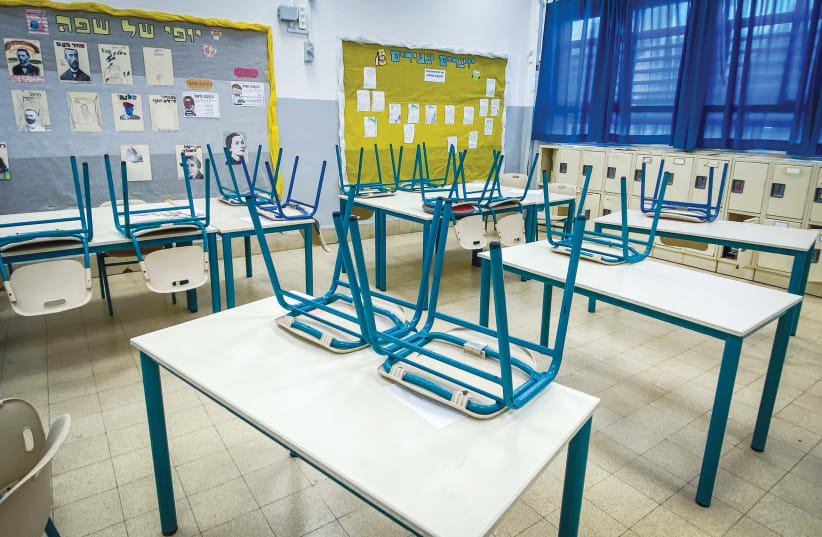Hebrew Ulpan teachers will shut down the Ulpans throughout the country Sunday morning, due to the salary protest they have been conducting for the past few months.
Hundreds of Ulpan teachers in the various Hebrew courses around the country announced on Sunday morning that they will use their sick days and not come in to teach. As a result, the Ulpans will remain closed and no classes will be held.
In recent months, the Ulpan teachers, who work for the Education Ministry and are represented by the Teachers' Union, have been fighting and demanding that a new wage agreement be applied to them that will improve their salary.
The Ulpan teachers, represented by the Teachers' Union, were not included in the new Ofek Agreement, similar to the school teachers, nor in the salary agreement last summer between the Finance Ministry and the Teachers' Union.
As a result, the salary of the teachers has not been updated in the last 15 years. A starting teacher in Ulpan receives a minimum wage payment as their salary. Ulpans have lost all ability to recruit new teachers and the sector is shrinking.
There have been several discussions in the various Knesset committees recently regarding the salary of Ulpan teachers, but there are no results. In the last admissions committee, the chairman said that the Israeli government's policy towards Ulpan teachers is harmful to the State of Israel.
In a year when 72,000 immigrants arrive, including about 1,000 doctors, immigrants have to wait six months for Ulpan.
According to reports that emerged from the last integration committee held last week, 350 immigrant doctors out of the 1,000 have already returned to their country, among other things, due to integration difficulties.
The Finance Ministry and Education Ministry didn't come to an understanding regarding the budgetary source required for the teachers' entry into the salary agreement, even though it is a low and negligible amount relative to the costs of the other salary agreements of the teaching staff. The issue has been pushed to the bottom of the priorities of the Finance Ministry and the Education Ministry and the teachers are leaving.
What do Ulpan teachers have to say about it?
Osnat, a teacher at the Gordon Ulpan in Tel Aviv, defined the situation as "unbearably difficult." She shared, "I personally don't have the energy to come teach. The ridiculous salary and the fact that every time it turns out that there is no agreement, we are not seen from a meter. Mentally, the strength is over."
"I have many other friends who feel the same way," she continued. "The difficulty is also technical, there is a large workload, a lot of students and a lot of difficulties. I need time off, I won't come to work over the next few days."
Yaffit, a teacher at Ulpan in Rishon Lezion, joined the conversation and spoke about Kashiya. "I have 30 students in class, in a very intensive and busy course that should contain about 20 students. I don't have the option of taking vacation days that I get between courses, because the immigrants wait a long time," she shared.
"I am dedicated to my students and work very hard for many hours beyond the face-to-face teaching: team meetings, continuing education and training, preparing lesson plans, checking assignments and tests, individual help for students, responding to student inquiries and more."
According to Yaffit, she can't handle the load, "and then receive at the end of the month, a salary that isn't even enough for the rent and current bills." She said, "I have a master's degree, 16 years of experience, work very hard and receive a humiliating salary. The fact that every other teacher in the Education Ministry receives 35% more than me makes me frustrated and feels like my employer isn't aware of the scope of my work and doesn't appreciate its importance."
"With all my love for my students and with all the mission I feel in this job, I can no longer work like this. I feel very distressed, which affects my health."

